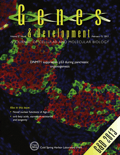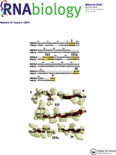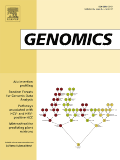
Non-Coding RNA
Scope & Guideline
Bridging Gaps in Non-Coding RNA Understanding
Introduction
Aims and Scopes
- Exploration of Non-Coding RNA Functions:
Research articles delve into the diverse roles of various types of non-coding RNAs, including long non-coding RNAs (lncRNAs), microRNAs (miRNAs), and circular RNAs (circRNAs), in gene regulation, cellular processes, and disease mechanisms. - Clinical Applications and Biomarker Discovery:
The journal emphasizes the potential of ncRNAs as clinical biomarkers for disease diagnosis, prognosis, and treatment monitoring, particularly in cancer and metabolic disorders. - Epigenetic and Post-Transcriptional Regulation:
Studies often focus on the epigenetic mechanisms and post-transcriptional modifications that influence ncRNA expression and function, providing insights into their regulatory roles in various physiological and pathological contexts. - Integration of Multi-Omics Approaches:
Research frequently employs multi-omics strategies to investigate the interplay between ncRNAs and other molecular entities (e.g., mRNAs, proteins), enhancing the understanding of complex biological networks. - Innovative Methodologies in RNA Research:
The journal publishes articles that introduce novel experimental and computational techniques for studying ncRNAs, including RNA sequencing, bioinformatics tools, and CRISPR-based approaches.
Trending and Emerging
- Therapeutic Targeting of Non-Coding RNAs:
There is a growing interest in developing therapeutic strategies that target specific ncRNAs, particularly in cancer treatment, indicating their potential as novel therapeutic agents. - Role of Non-Coding RNAs in Disease Mechanisms:
Increased attention is being paid to the role of ncRNAs in various diseases, particularly in cancer, metabolic disorders, and autoimmune diseases, underscoring their importance in pathogenesis. - Bioinformatics and Computational Approaches:
The integration of bioinformatics tools and machine learning techniques to analyze ncRNA data is on the rise, facilitating the identification of ncRNA interactions and regulatory networks. - Extracellular Vesicle-Associated Non-Coding RNAs:
Research on the role of ncRNAs in extracellular vesicles (e.g., exosomes) is gaining traction, highlighting their potential as biomarkers and mediators of intercellular communication. - Circular RNAs in Health and Disease:
Circular RNAs are increasingly recognized for their regulatory roles, leading to a surge in research focused on their functions and implications in various diseases.
Declining or Waning
- Basic Mechanistic Studies on ncRNAs:
There seems to be a reduction in purely mechanistic studies that focus on the basic biology of ncRNAs without immediate clinical relevance, as more research is directed towards translational applications. - Studies on Non-Coding RNAs in Non-Human Models:
Research involving non-human models (e.g., plants, lower organisms) has decreased, possibly as focus shifts towards human health and disease implications of ncRNAs. - Exploratory Studies on Less Characterized ncRNAs:
The exploration of lesser-known or newly discovered non-coding RNAs appears to be waning, with a greater emphasis now on well-characterized ncRNAs that have established roles in diseases.
Similar Journals

Non-coding RNA Research
Fostering Global Collaboration in RNA ResearchNon-coding RNA Research, published by KEAI PUBLISHING LTD, is a leading open-access journal dedicated to advancing the field of non-coding RNA, a critical component in the landscape of molecular biology and genetics. Established in 2016, this journal aims to provide a platform for the dissemination of high-quality research focusing on the roles, mechanisms, and therapeutic potentials of non-coding RNAs in various biological processes and diseases. With impressive Scopus rankings placing it in the top quartile for both Biochemistry and Medical Biochemistry, as well as notable standings in Genetics and Molecular Biology, Non-coding RNA Research continues to attract contributions from globally recognized experts. The journal's commitment to open access ensures broad visibility and engagement with cutting-edge discoveries, thereby fostering an inclusive scientific dialogue that enhances understanding and innovation in this rapidly evolving field. For researchers and scholars, the opportunity to publish in a Q1 ranked journal not only validates their work but also enhances its impact, making Non-coding RNA Research an indispensable resource for anyone interested in the intricate workings of non-coding RNA.

RNA
Exploring the Essence of Life Through RNARNA is a premier journal in the field of molecular biology, published by COLD SPRING HARBOR LAB PRESS, PUBLICATIONS DEPT. With an impressive impact factor reflected by its Q1 status in the Molecular Biology category, this journal has established itself as an essential resource for researchers and professionals dedicated to understanding the role of RNA in biological processes. Spanning over two decades of impactful research from 1995 to 2024, RNA covers a broad spectrum of topics, including RNA biology, gene regulation, and therapeutic innovations. Researchers can access its extensive array of original research articles, reviews, and commentary, making it a vital conduit for new discoveries and methodologies in the field. With its high ranking within Scopus at Rank #115/410 and a 72nd percentile ranking in the domain of Biochemistry, Genetics, and Molecular Biology, RNA continues to advance the understanding of RNA and its critical contributions to life sciences.

GENES & DEVELOPMENT
Transforming Discoveries into Applications in Health and DiseaseGENES & DEVELOPMENT, published by COLD SPRING HARBOR LAB PRESS, stands as a premier journal in the fields of Developmental Biology and Genetics, boasting a remarkable impact factor that reflects its prestigious position in the academic community—ranking Q1 in both disciplines as of 2023. Since its inception in 1987, this journal has been at the forefront of disseminating cutting-edge research, effectively bridging the gap between laboratory breakthroughs and their applications in health and disease. Researchers and professionals rely on GENES & DEVELOPMENT for its rigorous peer-review process and its commitment to promoting innovative studies that unravel the complexities of gene functions and developmental processes. With Scopus rankings placing it in the top percentile among its peers, this journal serves as a vital resource for students and established scientists alike, aspiring to expand their knowledge and contribute to the ever-evolving landscape of genetic and developmental research.

BIOCHEMICAL GENETICS
Advancing the Frontier of Biochemical InsightsBIOCHEMICAL GENETICS, published by Springer/Plenum Publishers, is a prominent journal in the fields of biochemistry, genetics, and molecular biology, with a substantial impact on the scientific community since its inception in 1967. The journal holds a significant position within various academic quartiles, ranking Q2 in Ecology, Evolution, Behavior and Systematics, and Q3 in Biochemistry, Genetics, and Medicine (miscellaneous), among others, demonstrating its diverse and interdisciplinary reach. With an ISSN of 0006-2928 and an E-ISSN of 1573-4927, it is recognized for contributing critical research insights and methodologies that drive the fields of biochemical genetics forward. Although it is not an Open Access journal, it provides vital access options and resources for researchers globally, facilitating the dissemination of knowledge across institutions. Positioned within the competitive landscape of Scopus rankings, it maintains respectable standings across its focused areas, making it an invaluable resource for researchers, professionals, and students seeking to deepen their understanding of genetic mechanisms and biochemical processes.

RNA Biology
Unraveling the Complexities of RNA ScienceRNA Biology is a premier journal published by Taylor & Francis Inc, focusing on the intricate and evolving field of RNA research. With an ISSN of 1547-6286 and E-ISSN of 1555-8584, this journal has established itself as an essential resource for professionals, researchers, and students engaged in both molecular and cell biology. Recognized in the 2023 quartile rankings, RNA Biology holds a distinguished Q1 category in Molecular Biology and a Q2 category in Cell Biology, indicative of its significant impact and reputation within the scientific community. The journal emphasizes the importance of RNA in various biological processes, highlighting both fundamental and applied aspects, which is crucial for advancing our understanding of gene expression and regulation. With a strong Scopus ranking, including Rank #105/410 in Molecular Biology and Rank #83/285 in Cell Biology, RNA Biology is not just a publication but a vital platform for sharing groundbreaking findings and insights into RNA research. With a convergence that spans from 2004 to 2024, the journal promises to continue its legacy of excellence in disseminating important discoveries in RNA science, contributing richly to ongoing scientific dialogue and innovation.

MOLECULAR AND CELLULAR BIOLOGY
Driving Innovation in Molecular and Cellular ScienceMOLECULAR AND CELLULAR BIOLOGY, published by TAYLOR & FRANCIS INC, stands as a preeminent platform for researchers, professionals, and students engaged in the dynamic field of molecular and cellular biology. Established in 1981 and ongoing into 2024, the journal features cutting-edge research that spans across vital sub-disciplines, garnering a strong impact in its contributions to the scientific community. With an impressive Q2 ranking in Cell Biology and Q1 ranking in Molecular Biology for 2023, it consistently publishes high-quality articles that reflect the latest advancements and discoveries within the field. The journal is particularly well-regarded for its rigorous peer-review process and commitment to scientific excellence, making it an invaluable resource for those seeking to deepen their understanding of molecular mechanisms and cellular processes. Although not open access, the journal offers diverse access options for researchers to reach the latest findings. By maintaining a strong focus on biochemistry, genetics, and molecular biology, MOLECULAR AND CELLULAR BIOLOGY remains essential reading for anyone looking to contribute to or stay informed about significant developments within this pivotal area of study.

GENOMICS
Transforming Genetic Knowledge into Impactful ResearchGENOMICS is a prestigious journal published by Academic Press Inc Elsevier Science, dedicated to advancing the field of genetic research and molecular biology. With an impressive impact factor, this journal is recognized for its rigorous peer-review process and high-quality publications that cover a wide range of topics within the genomics discipline. Operating from the United States, GENOMICS has established itself as a vital resource for researchers, professionals, and students alike, standing at Q2 in the Genetics category according to the latest rankings. With a rich history dating back to 1987 and convergence extending to 2024, the journal highlights cutting-edge discoveries and methodologies, ensuring that its readership remains at the forefront of genetic advancements. Although currently not an open-access journal, articles published within its pages are often accessible through various academic platforms, enhancing worldwide reach and dissemination. For those engaged in the fields of biochemistry, genetics, and molecular biology, GENOMICS serves as an indispensable platform for impactful research and collaborative initiatives.

Genetic Testing and Molecular Biomarkers
Pioneering Discoveries in Genetic Testing and Biomarker Innovation.Genetic Testing and Molecular Biomarkers, an esteemed journal published by MARY ANN LIEBERT, INC, serves as a pivotal platform for advancing the field of genetic research and its applications in medicine. Focused on the innovative intersections of genetics and biomarker discovery, this journal has consistently contributed meaningful insights since its inception in 2009, with its scope evolving through 2024. With an ISSN of 1945-0265 and an E-ISSN of 1945-0257, it offers both traditional and open access options to cater to a broad audience of researchers, professionals, and students. Despite its current classification in the Q4 and Q3 quartiles for Genetics (clinical) and Medicine (miscellaneous) respectively, the journal remains committed to publishing high-quality, peer-reviewed articles that push the boundaries of knowledge in the field. As the landscape of genomic medicine continues to expand, Genetic Testing and Molecular Biomarkers is positioned as a crucial resource for disseminating cutting-edge discoveries and fostering interdisciplinary collaboration.

Epigenomics
Illuminating the Role of Epigenetics in Modern Medicine.Epigenomics is a leading journal in the realms of Cancer Research and Genetics, published by Future Medicine Ltd in the United Kingdom. With an ISSN of 1750-1911 and an E-ISSN of 1750-192X, the journal has been an integral part of the scientific community since its inception in 2009, and is set to converge its impactful research publications through 2024. The journal occupies a significant position in its category quartiles as evidenced by its ranking—Q3 in Cancer Research and Q2 in Genetics as of 2023. With Scopus rankings of #138/347 in Genetics and #113/230 in Cancer Research, it demonstrates scholarly excellence and is recognized for its contributions to understanding the role of epigenetic modifications in health and disease. While Epigenomics operates under traditional subscription models, it remains a vital resource for researchers, professionals, and students eager to explore the complex interplay between genes and the epigenome. The journal's innovative approach to epigenetics and its impact on cancer research makes it essential reading for those at the forefront of biomedical research.

SEMINARS IN CELL & DEVELOPMENTAL BIOLOGY
Shaping the Future of Developmental ResearchSEMINARS IN CELL & DEVELOPMENTAL BIOLOGY is a premier journal published by Academic Press Ltd - Elsevier Science Ltd, focusing on the vital domains of cell and developmental biology. With an impact factor that reflects its rigorous contributions to the field, this journal embodies the highest standards of academic excellence, currently ranking in the Q1 quartile for both Cell Biology and Developmental Biology categories as of 2023. Researchers and practitioners will appreciate its robust Scopus ranking, placing it within the top tiers of developmental biology and cell biology, with percentile ranks of 94th and 90th respectively, showcasing the journal's influential presence in the scientific community. The journal aims to disseminate comprehensive reviews, cutting-edge research articles, and significant advances in the understanding of cellular mechanisms and developmental processes, thereby catering to a diverse audience that includes researchers, scholars, and students dedicated to the life sciences. Given its commitment to open access, SEMINARS IN CELL & DEVELOPMENTAL BIOLOGY promotes widespread dissemination of knowledge, enhancing collaborative research efforts and driving innovation across biological disciplines.